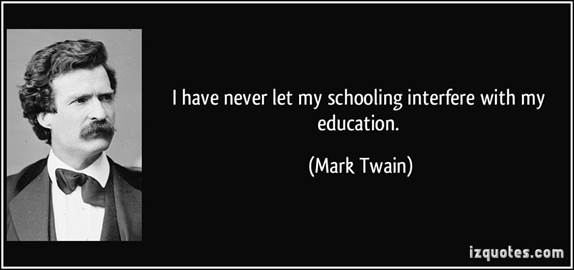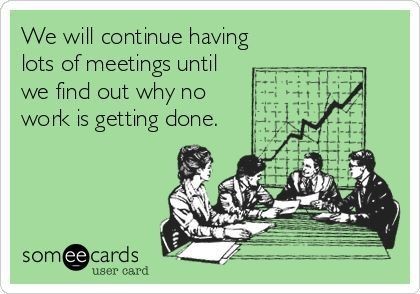Hi folks,
My early academic career was, um… less than stellar. Actually, I’ll just let Mark Twain sum it up:

But in recent years I’ve looked back on my school years as a missed opportunity – I passed up on a lot of knowledge. So I’ve begun trying to fill in some gaps by reading classic novels for which I only read the cliff notes and by dabbling in some online courses. And while I’ve stuck mostly to course offered by the big MOOC platforms like EdX and Coursera, I’m really intrigued by the potential of Khan Academy.
Khan Academy was founded on the development of online micro lectures to help students understand math and science concepts. The organization eventually developed a more robust education model where kids engage in passive learning – listening to lectures – at their own pace after school and school hours are reserved for working problem sets and collaboration activities. I don’t know if this model would have helped engage my adolescent self, but it sounds awesome to my adult self.
There’s an opportunity to apply this philosophy in the workplace, too – specifically with meetings.

All too often we use meetings as a means to broadcast information – verbal, face-to-face versions of emails. But it you don’t need or expect an interactive dialogue to accompany your announcement, email is a far better medium. It’s instantly scalable, provides a written record, and encourages a crisp, concise articulation of thoughts. In the spirit of the Khan Academy, an email announcement also allows the recipient to process the information at their own pace, enabling them to develop more thoughtful, useful responses. And finally, it saves our precious face-to-face time to be used on activities we can’t accomplish separately – collaborations, working through problems together, etc.

We all should reevaluate how we use meetings. Are we using them for useful, collaborative engagement with our stakeholders and partners? Or are we defaulting to them as a broadcast mechanism that could easily be replaced by email? If it’s the latter, let’s change our mindset and save meetings for exciting awesomeness that requires the active participation of all attendees.
Rex